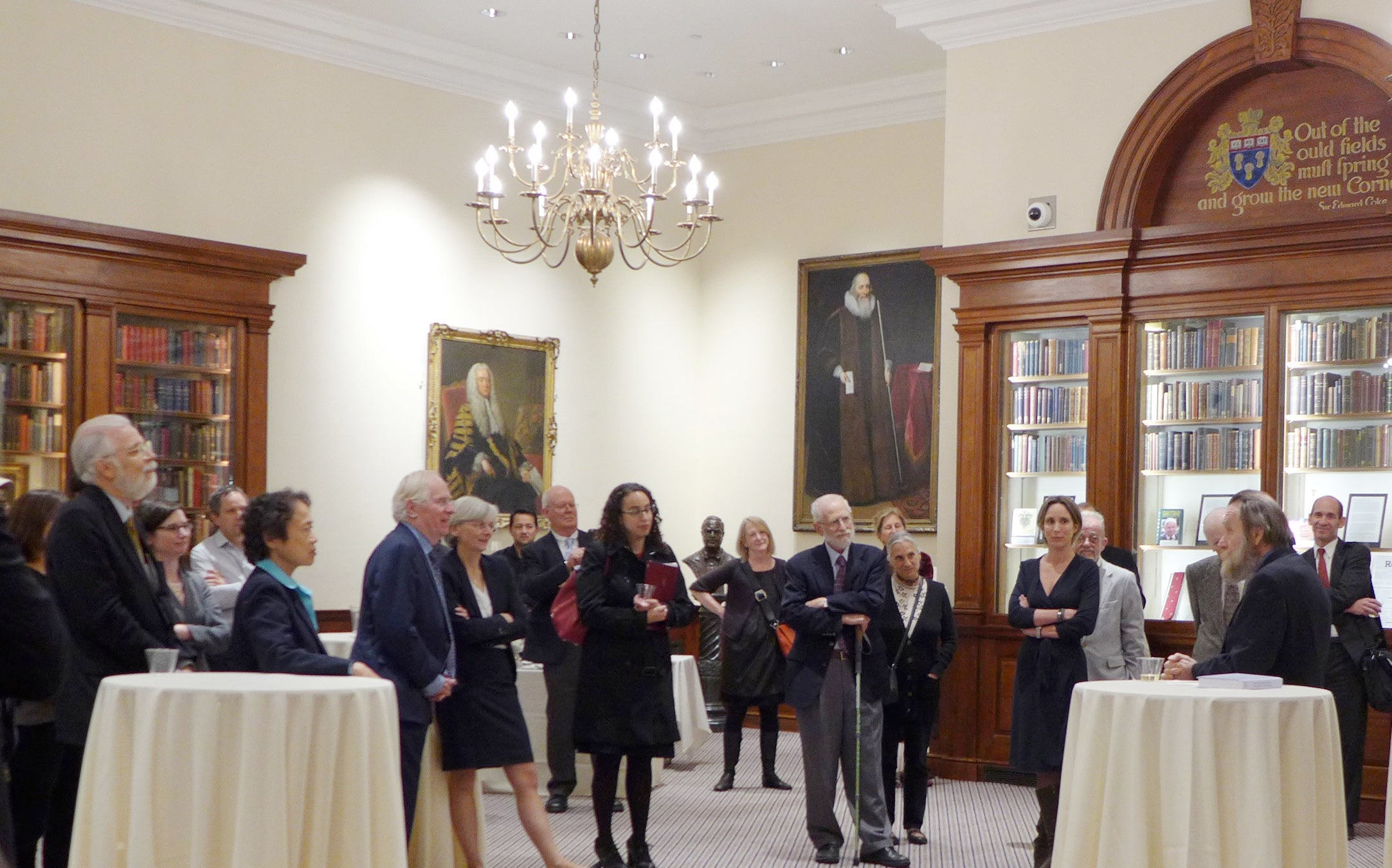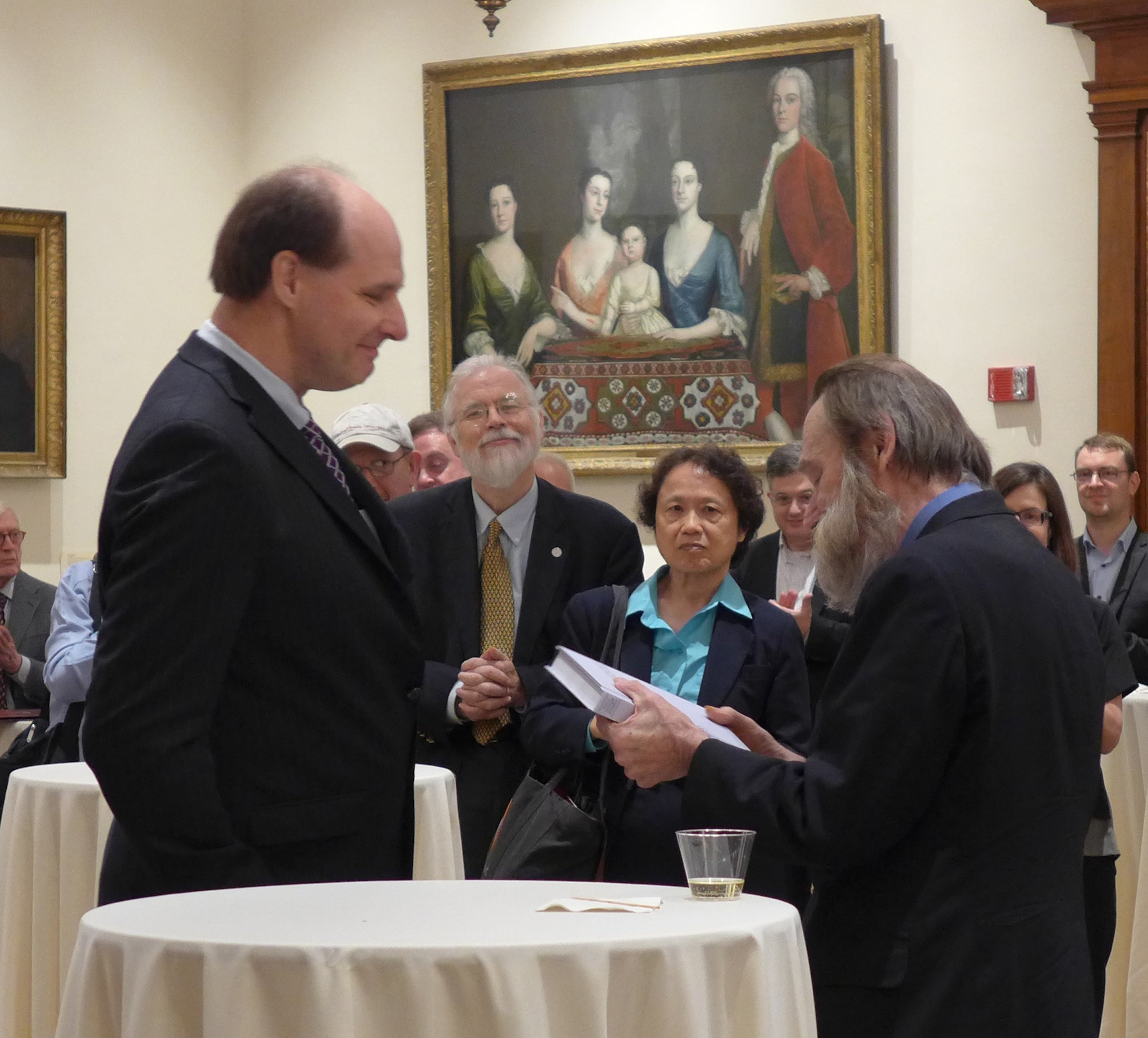This fall, Harvard Law School held a conference in celebration of the career of legal historian and HLS Professor Charles Donahue. Scholars came from around the country and around the world and spoke on topics related to medieval and early modern history. The day culminated with the presentation to Donahue of a festschrift, “Texts and Contexts in Legal History: Essays in Honor of Charles Donahue” (The Robbins Collection, University of California at Berkeley). The volume was edited by John Witte Jr. ’85, professor of law at Emory University; Sara McDougall, associate professor of history at John Jay College and the CUNY Graduate Center; and Anna di Robilante LL.M. ’03, S.J.D. ’11, professor at Boston University School of Law.
“Superb scholar, influential teacher and indomitable force for archival work and force behind publications of historical materials, Charlie is such a worthy inspiration for the marvelous chapters gathered here,” commented HLS Dean Martha Minow, who contributed a foreword to the festschrift and spoke at the event in his honor. “His early teaching on law, history and society influenced his scholarship and then guided generations of scholars to focus on the words, structures, and assumptions embedded in legal texts, and then to ask daring questions about context. “
Donahue joined the HLS faculty in 1980 after teaching at the University of Michigan Law School. His scholarly interests include property, European legal history, and marriage litigation. He is a fellow of the Royal Historical Society (United Kingdom) and the Medieval Academy of America. The festschrift celebrates his work over the past half century, including his scholarship on medieval records. His most prominent book, “Law, Marriage, and Society in the Later Middle Ages: Arguments About Marriage in Five Courts,” explores a series of decisions by Pope Alexander III (1159-1181) that became the basis of marriage law in Western Europe for the next three centuries. A legal and social history, the book uses data from medieval court records to reveal not just evolving laws, but also how late medieval men and women sometimes manipulated each other and the courts.

“General readers come away from this book with a vivid impression of a living family law system in action, every bit as sophisticated as any civil law or common law system of marital family law that came after,” said Witte, who contributed a preface to the festschrift and praised Donahue as a teacher and a scholar during the conference. “Legal historians and family historians must return to this book time and again to check out how their particular topics were worked out by medieval jurists and judges not only in theory but also in action. This book will doubtless be read, mined, and admired for the next century and more.”
Mary Bilder, professor of law at Boston College Law School, who contributed to the festschrift and the conference, described Donahue’s work as the literary director of the Ames Foundation, a non-profit organization devoted to continuing the advancement of knowledge about and access to legal history. She noted that under his leadership, the foundation has printed a variety of unpublished early English legal manuscripts and is making available digitally a collection of early legal manuscripts in conjunction with the Harvard Law Library. “Charlie’s work on the project and as literary director embodies his deep conviction that the scholarly community exists across time,” said Bilder. “The hours and years he has expended are worthy endeavors because some time—perhaps long after our lifetime—this work will help others understand and write about the past. For this selfless service, not just to us but to those who come long after us, we owe [him] an incalculable debt of gratitude.”
Witte concluded: “[W]e owe our greatest thanks to Professor Donahue for his brilliant scholarship, teaching, and mentorship, for his generous humanity, fidelity, and integrity, and for the sterling example he offers to all of us of a gentleman’s scholarly life lived well. May it long continue!”
